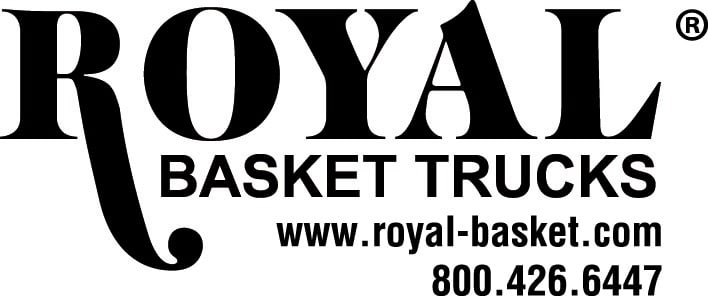Church events, projects, and activities play a significant role in glorifying God, fostering community strength, increasing spiritual growth, and expanding outreach within church congregations.
Such events, projects, and activities include, but are not limited to, the following: community service projects, workshops, seminars, retreats, guest speakers, fairs, and youth experiences.
Effective conflict resolution is crucial for the smooth organization and execution of church events, projects, and activities. Disputes among event organizers, church leaders, or participants can hinder planning and implementation.
Christian alternative dispute resolution seeks to ensure that any conflicts are resolved promptly and fairly, allowing the church to focus on delivering successful events that meet the spiritual and communal needs of its members.
As a practice note, any agreement or contract related to a church event, project, or activity should contain a proper Christian alternative dispute resolution provision.
For example, a church facility use agreement for a special event at the church that includes such a provision helps to effectively manage disputes in a manner consistent with the church’s values, promote peace and unity among all parties, and keep the church our of secular courts.
An effective Christian alternative dispute resolution provision often includes some key elements to ensure the parties resolve their dispute in a Godly manner.
Here are just some (not all) of those key elements:
- Clear Scope: Define all the types of disputes that are subject to Christian alternative dispute resolution. If the provision is a facility use agreement, include all disputes arising out of the agreement.
- Scriptural Basis: Cite the scriptural basis for utilizing Christian alternative dispute resolution. This article explains the basis in more detail – keep reading!
- Process and Procedures: Outline the formal Christian alternative resolution process that the parties will use to resolve disputes. Many Christian organizations, businesses, and ministries conduct Christian alternative resolution for churches.
- Mandate Participation: Clearly state that Christian alternative resolution is binding on all parties.
- Fees and Expenses: Outline each party’s financial obligations for participating in Christian alternative resolution.
If a church special event, project, or activity generates an unresolved dispute, relying on Christian alternative dispute resolution offers the church a peaceful resolution without the pain and cost of a secular court intervention. Such a course of action best serves all the parties involved in the dispute, protects the church’s best interests, and honors God.
Let us now take a more substantive glimpse at the Christian alternative dispute resolution process.
Conciliation
The first stage in Christian alternative dispute resolution often involves informal conciliation efforts between the sparring parties. The parties should receive individual counseling on resolving the dispute in a personal and private manner with the other party. Or, the parties may discuss the dispute among a select group of respected church leaders in an effort to reconcile the concerns. Jesus remains the central component of conciliation, which is emphasized to the parties.
Mediation
If informal conciliation fails to yield a resolution, the second stage in Christian alternative dispute resolution may involve outside help from a like-minded believer. Usually, through careful guidance from legal counsel, a church will obtain the services of an experienced Christian mediator. Christian mediator organizations, individual Christian mediators, and some denominations have formal Christian mediation processes.
Christian mediation encourages honest communication and reasonable cooperation rather than unnecessary contention and advocacy. The parties retain control and input into the outcome or settlement of their dispute. The mediator facilitates discussion and assists parties in following a process but does not negotiate or advocate for a particular settlement. Throughout the mediation, the mediator stresses the Scriptural foundations for seeking a final resolution.
Every mediation organization and mediator conduct mediation according to their preferred methods. However, Christian mediation generally includes the following phases:
- Introduction of the mediator and the establishment of ground rules set forth by the mediator (utilizing prayer, Scripture, and biblical principles)
- Opportunities by the parties to share their story and understanding of the dispute with the mediator
- Solution exploration with the mediator that allows the parties to help formulate a mutually acceptable resolution to the conflict
- An agreement that resolves the dispute
This is often an emotional experience for the parties. While leading the parties to a resolution, the mediator maintains a neutral perspective—applying biblical principles to help guide the parties toward resolution—while underscoring the ultimate goal of glorifying God in the process.
Christian Arbitration
Almost all such disputes should be resolved by the time the parties conduct mediation. In the unfortunate event that resolution remains elusive, Christian alternative dispute resolution enters a third stage: Christian arbitration. Similar to mediation, through careful guidance from legal counsel, a church will obtain the services of an experienced Christian arbitrator. Arbitration represents a legally binding judgment that is enforceable in a secular court. Arbitration is essentially a private opportunity to litigate the conflict under the guidance of a Christian arbitrator.
In arbitration, the arbitrator makes a formal and final decision after hearing the parties and examining any evidence. The parties are bound by the arbitrator’s decision. Accordingly, the parties agree to use a mutually acceptable arbitrator to resolve their dispute. Although the arbitrator is the final arbiter, the arbitrator guides every decision through the lens of the Bible.
Unlike the United States civil court system, Christian alternative dispute resolution in all its forms (conciliation, mediation, and arbitration) dispenses with secular and often anti-Christian dispute resolution methods by allowing the parties to resolve disputes, both large and small, to work toward resolution using their faith.
Should you have a dispute and need Christian dispute resolution, ensure you utilize a law firm that would be honored to assist and help—biblically and in a way that honors God—resolve the dispute.
Mark Francis Juba is a partner at My Church Law Firm, a full-service, client-centered, and cost-effective national law firm centrally located in Flower Mound, Texas, www.mychurchlawfirm.com.













